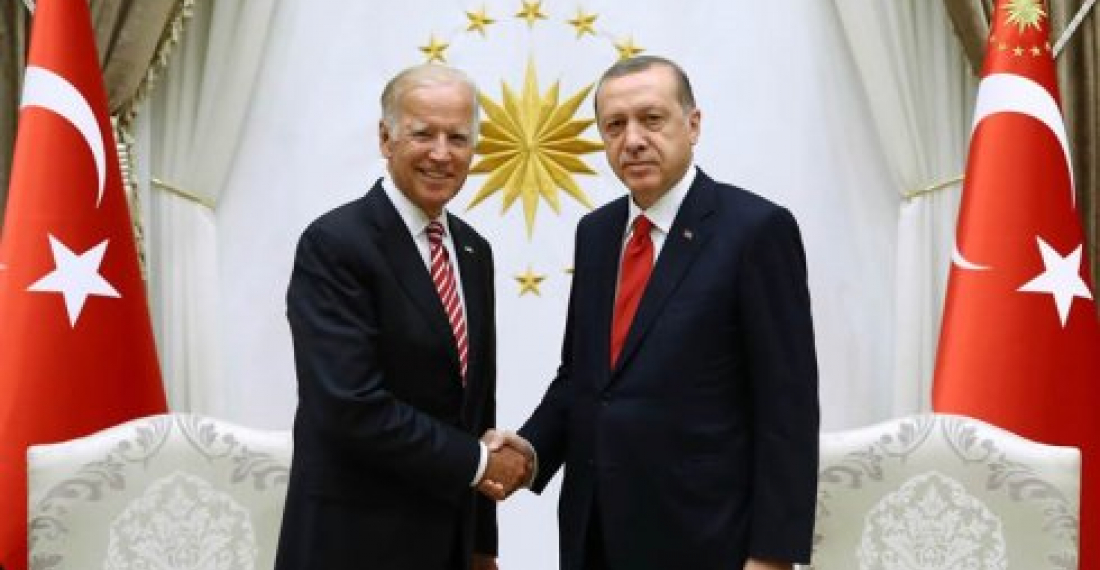US Vice President Joe Biden on Wednesday was in Ankara where he met Turkish leaders. The visit came at a time when relations between the two countries are at a low point, with Turkey suggesting American implication in the failed coup attempt on 15 July. The visit was overshadowed by the start of a Turkish military operation into Syria on wednesday morning, which is meant to clear areas close to the Turkish border of supporters of ISIS and other groups that Turkey feels threaten its security.
The US Vice President met the Turkish President, Recip Tayip Erdogan, as well as Prime Minister Binali Yildirim.
A key issue during the visit was Turkey's request for the extradition of Fetulah Gulen who Turkey says was responsible for the failed attempted coup on 15 July. The Vice President said the case would be presented to the Federal Court and it will decide as soon as there is enough evidence.
He also noted that the U.S. had no reason to see Turkey under a military dictatorship.
Biden also apologized for not coming to Turkey earlier after the failed coup attempt.
On his part President Erdoğan said that Ankara's demand on Gülen's extradition should not be disregarded and bilateral agreements between Ankara and Washington require his detention.
Meanwhile, the White House has announced that U.S. Justice department officials were carefully reviewing the evidence related to Gülen's extradition, saying Ankara had provided a lot of information on the issue.
Biden's visit and his expressions of support do not seem to have been enough for the hardline supporters of the AK party. The pro AKP newspaper Daily Sabah in an editorial said that Biden's "sly smile, insincere apology about not having come sooner and feeble remarks of friendship between the people will deservedly fall on deaf ears". The newspaper said that Biden's visit was "a wasted opportunity".
Commonspace.eu political editor said in a comment that "regardless of the bravado talk of AK party mouthpieces, Turkey is in no position to lose the support of the United States as it embarks on a risky military incursion into Syria. The visit would have helped to clear the air on some issues, and to speed up action on others. Obviously the US government needs to tread carefully on a case that is likely to be hardly fought within the US justice system. But the Turkish leaders would have made it clear that for them the extradition of Gulen is a prioirity issue, and Biden would have been able to see for himself how deeply emotional this issue has now become in Turkey".
source; commonspace.eu with Hurriyet Daily News and Daily Sabah






